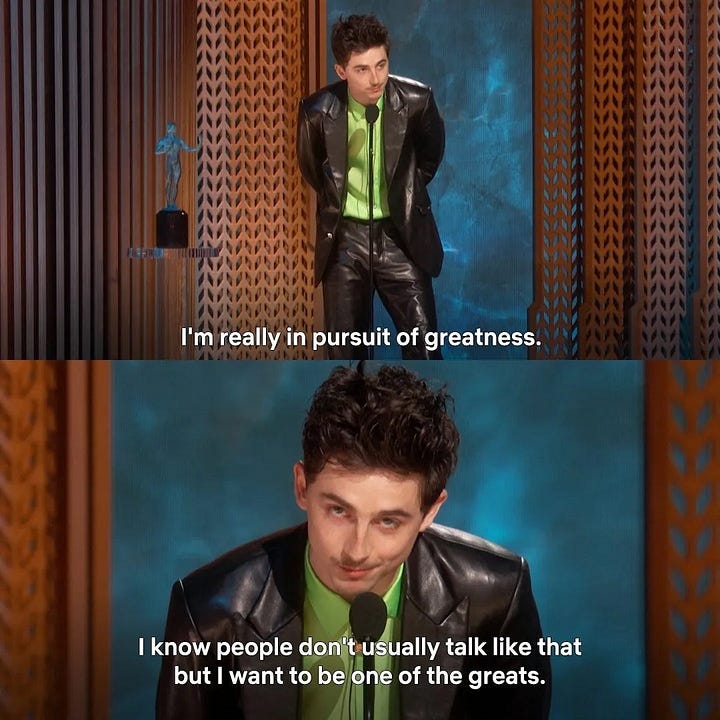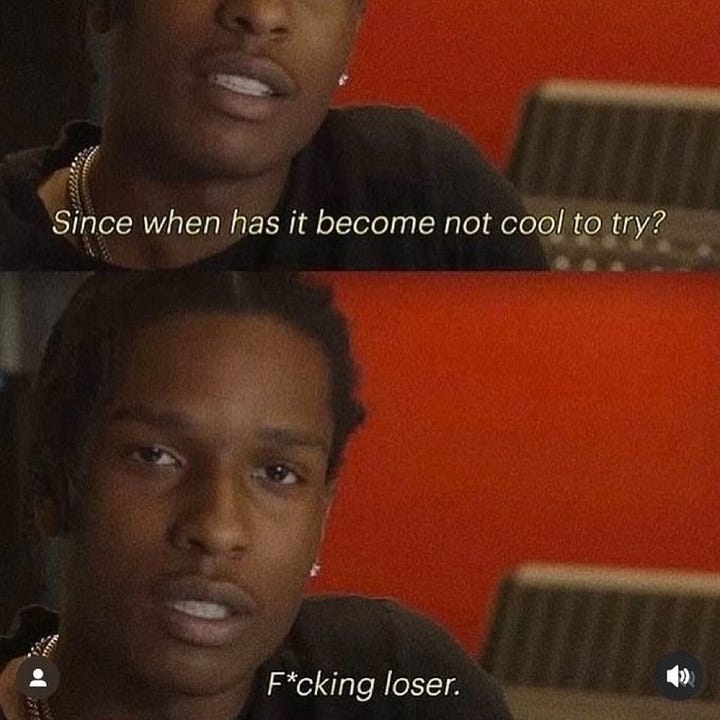

I took my first Creative Nonfiction class last year. On our first day, we all had to go around the Zoom Room and do an ice breaker. Where we’re located, if we read any good CNF lately, what we hoped to get out of the class, and what we want to accomplish in our wildest writing dreams.
“If I could just inspire even one person with my work…” one of my classmates said, near tears. And one by one, my classmates mostly said a variation of that same thing. It was their wildest dream for one person to be inspired by their work, to help one person with their words. It was the modest answer, the nice answer. And to be clear, a perfectly valid dream. I went last and part of me wished that I could give the nice answer. I knew my answer would stand out. Maybe people would decide right then and there that they didn’t like me or my work. But my answer was and is, “I want my words to inspire people all over the world. And if we’re talking wildest dreams, then yeah, of course, I want to be a bestseller and you know what? I’ll go for the Pulitzer too and any other award. I want to be one of the literary greats.” Through the Brady Brunch like squares of the Zoom gallery, I saw some smiles, some in recognition, like yeah, I’d want that too, some, like yeah, that’s a pipe dream, but a nice one, and some people openly bristled against my words.
I think wanting to be great at something you really love, something that inspires people is actually the coolest thing in the world. But the world, for some reason now, sees trying hard as uncool. Twitter openly bashes Bradley Cooper, saying things like ugh, he wants an Oscar so bad. They make fun of Jeremy Strong for taking his work too seriously. And Timothee Chalamet receives backlash for a seemingly earnest speech at the SAG awards after winning his first major award. And this scrutiny isn’t reserved for just celebrities— it’s even harsher for those of us who don’t fit the traditional mold of success, like Black women and other marginalized groups. We’re shown over and over again that we have to be twice as good. We have to be excellent—and then pretend we’re not.
Male athletes are allowed to do this for the most part. Muhammed Ali famously said “I am the greatest. I said that even before I knew I was.” Maybe because society has traditionally undervalued the arts. Artists often hear variations of “oh yeah, I’d love to write or paint or make movies. Maybe after I retire from my real job.” Art isn’t taken seriously. It’s not prioritized. So it’s jarring when someone decides to take it seriously. Out loud. That coupled with social media cynicism and endless criticism, is enough to want to shrink back and not be seen trying.
Wanting to be great doesn’t mean being arrogant. It doesn’t mean being entitled. Greatness doesn’t necessarily mean recognition or the award of your desire. It means being so in love with and passionate about your work that you want to be good at it. That you want to learn the craft in and out. That you want to fall in love with art- your own and others- for the rest of your life. It means allowing yourself to be a vessel. It means submitting and surrendering to the unknown. And perhaps a level of discipline that you’ve never known. It means putting work in and not knowing the outcome, simply for the love of the work. Greatness for me means studying the greats, reading widely, deeply, closely, and pushing my pen as often as possible. It means surrounding myself with others who want to be great. It means writing a piece until it’s honest. It means reworking and revising. It means showing up to my journal and laptop when I don’t feel like it. It means paying more attention to the process than the applause or criticism. And it means committing to a life-long practice of sharpening my skills.
What does greatness look like for you? Feel like for you? Let me know in the comments!
To being great,
Renée





This was lovely. I want to publish a book, with a major publishing house & get paid well enough to continue doing it. I rarely say this out loud, thank you for the space.
I love this! Thank you so much for sharing! Last night, I had a conversation with someone I had just met and, when she asked what I do, I hesitated and sheepishly admitted that I'm having a small career crisis but I recently started sharing essays on Substack. I found myself saying things like, "I'm sure it won't end up going anywhere" and "I don't have many subscribers or anything like that!" but that I genuinely love writing and it would be amazing to eventually do it full-time. This person was so, so supportive and sincerely encouraged me to keep going, which I tremendously appreciated. Thanks again for this piece, Renée – it really inspired me!